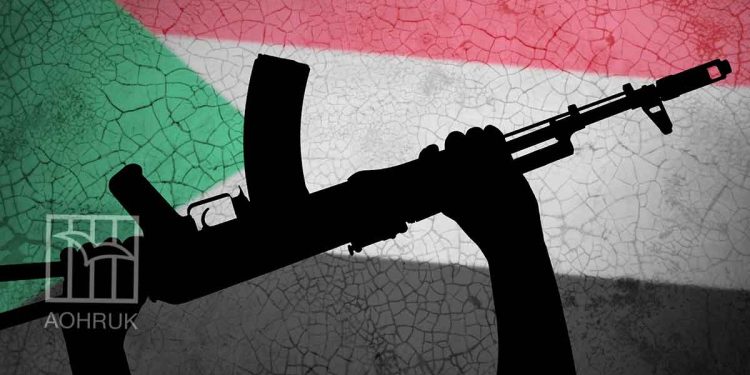Sudan stands today at the edge of one of the world’s most complex humanitarian crises, as the war between the army and the Rapid Support Forces enters its third year, turning the country into an open arena for hunger, displacement, and the near-total collapse of state institutions.
In a joint briefing from New York, United Nations officials called for an immediate ceasefire and unrestricted humanitarian access to millions of Sudanese, warning that the situation has reached “unprecedented and catastrophic levels.”
According to UN estimates, more than 15 million people have been forcibly displaced, either within the country or across its borders, while millions more face the threat of starvation and death amid the systematic destruction of civilian infrastructure and the collapse of health and education services.
Independent studies suggest that the death toll may exceed 130,000, as millions teeter on the brink of famine.
This grim reality exposes the collapse of the international protection system for Sudanese civilians, as towns and villages have become scenes of grave violations including summary executions, mass rape, forced recruitment, and systematic looting, all of which constitute war crimes and crimes against humanity under international law.
Beyond the armed violence, civilians in Sudan are facing another form of warfare: the denial of humanitarian aid. The blockade of conflict zones and the obstruction of relief deliveries represent blatant violations of the Geneva Conventions, which oblige all parties to allow the free passage of humanitarian supplies. While aid convoys pile up at border crossings, civilians continue to die in silence inside besieged cities.
This cannot be dismissed as administrative failure or poor coordination, but rather a deliberate use of starvation as a weapon, an act defined under international humanitarian law as a war crime. Every hour that passes without food, water, or medicine delivered is another life lost to a political or military decision.
According to UN agencies, children are bearing the heaviest burden of the conflict, with millions suffering from acute malnutrition, while women face widespread sexual violence and forced enslavement in several areas.
International law not only condemns violations against civilians but also imposes a clear obligation on the global community to protect them and prevent the continuation of such crimes. Yet, the international response to Sudan’s crisis remains far below the minimum threshold of moral and legal responsibility. While UN appeals continue to echo, the decisions of the Security Council remain hostage to political calculations, leaving both aid and justice trapped in the web of international interests.
Today, Sudan stands at a historic crossroads: either it halts its bleeding through a genuine will for peace, or it is left to its fate, as the world watches from afar the tragedy of the century unfold. For silence in the face of this war, with all its crimes, hunger, and displacement, is no longer neutrality, it is complicity in the crime itself.


























